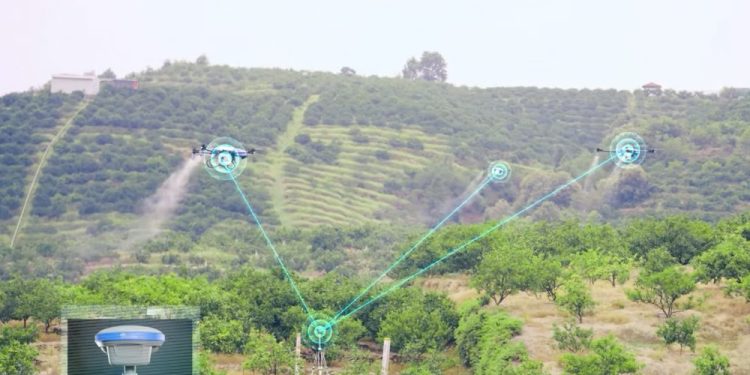n this article, we explore the groundbreaking advancements in agricultural technology, focusing on the emergence of agricultural drones for precise chemical application. Drawing upon the latest data and insights, we delve into the current state of this technology in Brazil, highlighting its potential to revolutionize farming practices and boost productivity.
Precision agriculture has been rapidly evolving in recent years, and one of the most exciting advancements in this field is the utilization of agricultural drones for chemical application. These unmanned aerial vehicles (UAVs) have proven to be a game-changer, offering farmers in Brazil a cost-effective and efficient method of applying agrochemicals. According to a recent report from AGRO.BZ, the use of agricultural drones for chemical application has already become a reality in Brazil, transforming the way farmers manage their crops.
The adoption of agricultural drones in Brazil has seen a significant rise in recent years, thanks to the numerous advantages they offer. These drones are equipped with cutting-edge technology, including high-resolution cameras, sensors, and GPS systems, enabling precise and targeted chemical application. By providing farmers with real-time data on crop health, nutrient deficiencies, and pest infestations, these drones empower them to make informed decisions and optimize their farming practices.
The use of agricultural drones for chemical application brings several notable benefits. Firstly, it reduces human labor and operational costs associated with traditional ground-based spraying methods. With drones, farmers can cover larger areas of land in less time, enhancing overall efficiency. Additionally, the precise application of agrochemicals reduces wastage and environmental impact, minimizing the risk of overuse or contamination.
According to the Brazilian Institute of Geography and Statistics (IBGE), the implementation of agricultural drones has resulted in a significant increase in crop yield and quality in several regions of Brazil. Farmers have reported improved pest and disease management, resulting in healthier crops and higher profits. Furthermore, the ability to identify and treat specific areas of concern within a field has led to a more targeted approach, optimizing resource allocation and reducing input costs.
In conclusion, the utilization of agricultural drones for chemical application has become a reality in Brazil, revolutionizing farming practices across the country. These drones offer farmers an efficient and precise method of agrochemical application, leading to increased productivity, reduced costs, and improved environmental sustainability. As technology continues to advance, it is expected that the adoption of agricultural drones will continue to grow, transforming the agricultural landscape and driving the industry towards a more sustainable future.
Tags: Agriculture, Precision Farming, Agricultural Drones, Chemical Application, Farming Technology, Brazil, Crop Yield, Environmental Sustainability





